How Parenting My Black Children In Lockdown Changed My Relationship With Motherhood
November 19, 2020BruceDayne#DMTBeautySpot #beauty
Refinery29 is proud to partner with organic vitamin purveyor Garden of Life to amplify the voices of mothers as they navigate the complicated nuances of parenthood in quarantine.
Nine out of ten of my friends would undoubtedly describe my parenting style as “overprotective.” As a young mom, I never left my kids with a babysitter. I even accompanied them on playdates (much to their chagrin and to the chagrin of their confused hosts). I was nearly the only parent in the history of my daughters’ elementary school to forbid their child from attending the fourth grade camping trip (I reluctantly acquiesced in the 11th hour).
But naturally, in spite of my parental instincts, I’ve had no choice but to begin loosening my grip as my kids grow older. And to their delight, in this past year alone, I made some real progress in veering away from my helicopter-parent modus operandi. In February, I allowed my 14-year-old daughter, Meazi, to go away on a trip with a family other than ours. Shortly after that, I permitted her to apply for a program to study Mandarin in Shanghai during the summer. Then, I gave her the freedom to move herself and her most prized belongings out of our tiny westside Los Angeles home and into our converted garage out back.
I took a similar approach with my 11-year-old son, Melese, who was enjoying his last semester of elementary school. I stood back while he did his homework (yes, without hovering over him), practiced his trumpet unprompted, and even occasionally made breakfast — for the entire family. He was set to graduate this past June, before moving on to middle school in September, and it seemed that my era of overly-involved parental intensity was reaching its expiration date.
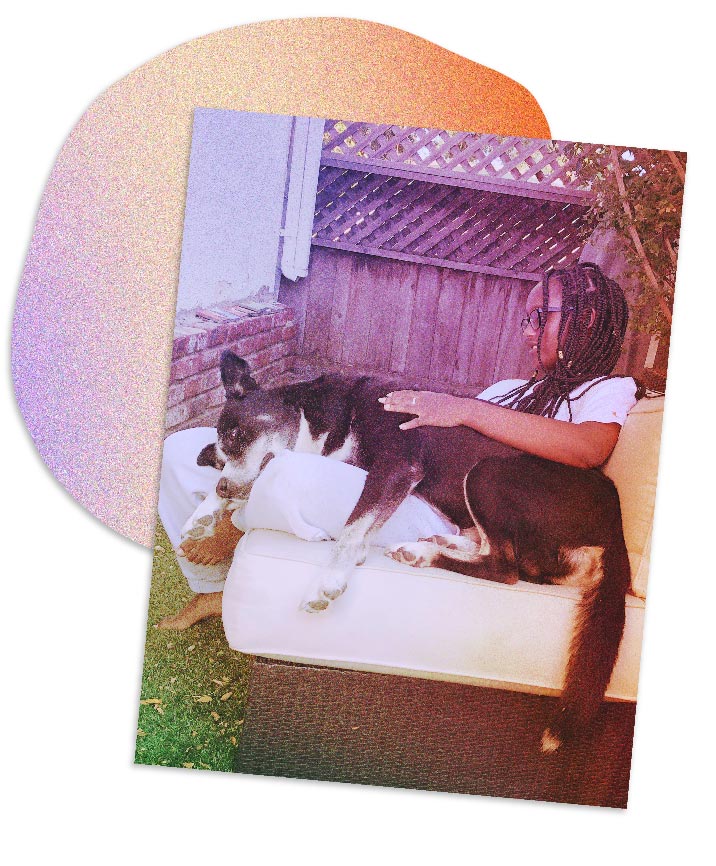
Much to my surprise, I wasn’t totally mourning the shift in motherly responsibilities. In fact, all the impending change, although tinged with an underlying sadness, felt exciting. As my kids were becoming more and more self-sufficient, I found I could clear up some brain space for endeavors beyond parenthood — like finishing my children’s book, and taking on more freelance photography and writing assignments. The whiteboard organizer we kept in the kitchen was gradually filling with my tasks and updates, not just those of my kids.
Then, the pandemic hit, and Breonna Taylor was killed by Louisville police officers in her own home. Quickly, I felt myself taking two steps backwards. Instead of flinging open the door to the big, wide world for my two children, I was slamming it shut, locking it and disinfecting the doorknob with bleach. Schools were shut down, my husband, Steven — our primary source of household income — lost his job, and there we all were. Just as I was getting better at accepting that my kids were growing up, immediately, I was overcome with the impulse to hold them tighter than ever.

The last time all four of us had been home like this was 11 years ago, when my husband and I first brought four-year-old Meazi and eight-month-old Melese (who are biological siblings) to Los Angeles from Ethiopia. All of the adoption literature had said that the best thing to do in those first weeks was to hole up together, and to avoid all other people. This was supposed to establish that we were our children’s sole caregivers. So that’s what we did. We co-slept and wore the kids on our backs and chests in cloth carriers. At the time, we’d only had the luxury of taking a week or two off of work, but the pandemic threw us back into this cocoon-like setting for an entire seven months and counting — and the kids were no longer small enough to be carried around on our chests.
The first two weeks of the California shutdown were rough. Filled with anxiety, I scurried through the house yelling at everyone, “Wash your hands and stop touching your face!” I taped down the mail slot on our front door, thinking that somehow that would keep the virus at bay. I remember pouring myself a tumbler of tequila, a giant bowl of peanut M&Ms, and retreating to my bed, while a parade of questions ran through my head: Do we have a will? When I’m on a ventilator how will they know that I don’t have a thyroid? Does Steven want to be buried or cremated? How many mortgage payments can we miss before they take the house?
Fortunately, as someone who has struggled with clinical depression for decades, I already had a good therapist on call. I knew that, in order to combat this kind of cyclical thinking, I needed to continue to talk to her once a week. Our health insurance, directly linked to Steven’s work hours, was secure for at least the next few months, and I was immensely grateful for that privileged access to support. Steven started receiving unemployment, and we began to dip into our retirement savings to temporarily cover our mortgage. It wasn’t an ideal situation, and we knew it would only tide us over temporarily, but we felt so incredibly lucky to have the means to continue living comfortably and spending time together as a family.
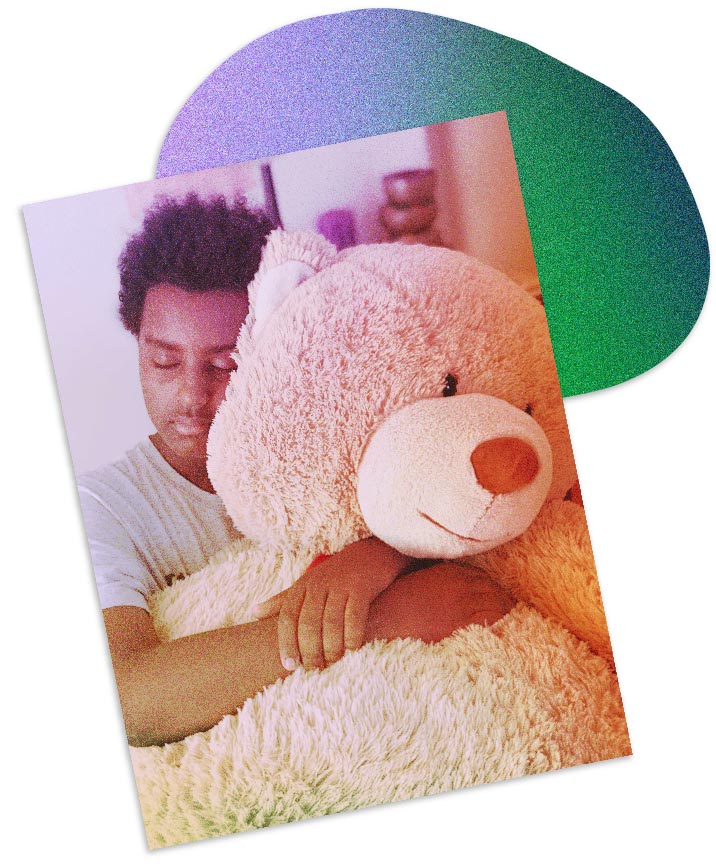
Cooking and eating food provided a soothing scaffolding for our days. The four of us harvested fruit from our yard, my husband made loaves of bread and even spent an entire day making bolognese. We knew we had it good in the grand scheme of things. Before shutdown went into effect, my husband typically saw Melese for about twenty minutes before bedtime after he arrived home from work. Now, he was able to read to him for an hour and a half each night. By the middle of May, we had something of a rhythm down. We threw out our standard, stricter parenting rules and temporarily became YES parents. “Can I have a root beer float?” YES. “Can I binge watch this kind of too-mature-for-me TV show?” YES. “Can we celebrate my half-birthday for the first time ever?” YOU BET, KIDDO!
Then, on May 25th, my Black children and I, their white mother, watched a white police officer kneel on the neck of a Black man for eight minutes and 46 seconds until the life drained out of him.
I was furious and grief-stricken watching and reading about the outrageous act of brutality, but I also recognized whatever I was feeling couldn’t compare to what my kids were going through, the fear and anger they must have felt. Having benefited my whole life from white privilege, I was constantly trying to accelerate my education on racism, especially while raising two Black children. I was part of the Diversity, Equity, and Inclusion committees at my kids’ schools and an anti-racist book club. I worked to instill in my kids a sense of pride and love for their Ethiopian heritage. Living so close to LA’s Little Ethiopia, they were fortunate enough to be able to partake in cultural activities like Amharic lessons and traditional dance classes. They celebrated holidays like Enkutatash and Genna. But despite my best efforts to understand, I knew that I would never be subject to the hostilities they would face, and despite raising them in a supposedly liberal, progressive, diverse community, I couldn’t protect them from the realities of racism in this country and in the world at large. I didn’t know if I wanted to shield them from the world, or help prepare them to confront it.
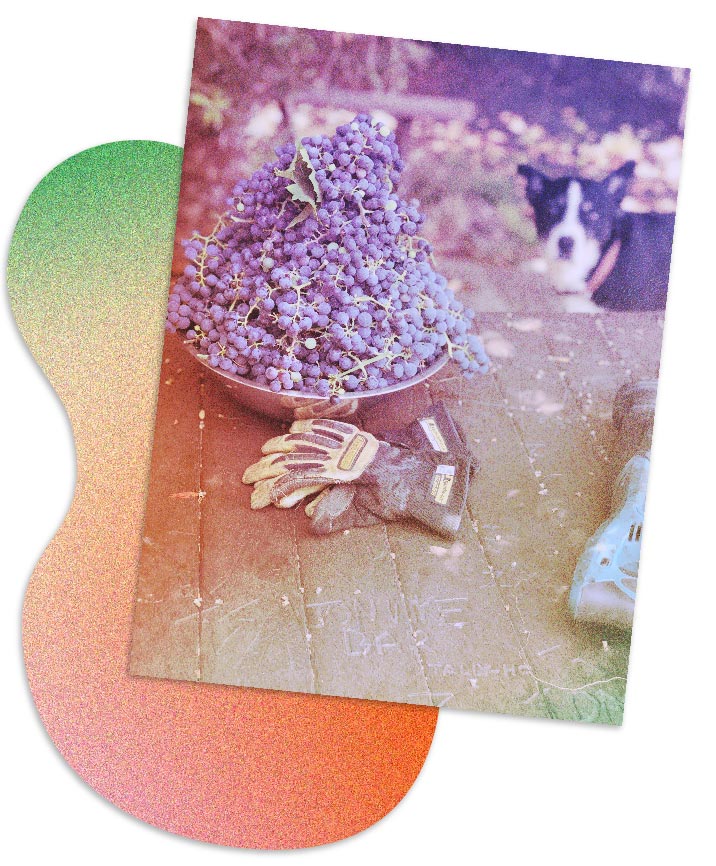
So, when Meazi told us she wanted to protest the death of George Floyd with her classmates — that she needed to go alone with her peers — in spite of the fact that she hadn’t yet broken quarantine, we said yes.
Masked, carrying hand sanitizer, the ‘find my location’ feature switched on in her phone, she marched with her friends from a nearby park to our local police station. I watched her little cursor icon on my phone, following her path around the corner of the street, and when her movement halted in front of the police station, I yelled nervously, “Why is she stopped at the police station for so long? Has she been arrested??” But I waited and watched as the cursor moved finally back around the corner, and I exhaled as she and her friends wearily plopped themselves down in our yard and asked for hot food and cold water.
Less than a month later, in June, we broke quarantine once more: A friend texted me to let me know that Meazi’s friend, Summer, had been rushed to the hospital. Diagnosed in the fourth grade with Systemic Juvenile Idiopathic Arthritis, she had suffered a heart attack and was on life support. A large group of us gathered in the hospital’s outdoor courtyard. None of us were allowed to see her because of COVID restrictions, but we wanted to be there to support the family. Masked, bumping elbows instead of hugging, we kept vigil, hoping and praying that Summer would get better. We applauded and cheered for the exhausted healthcare workers at seven o’clock each evening as their shifts changed. A neighbor of Summer’s arrived, scanned the clumps of worried teenagers and asked, “Which one of these friend groups is Summer in?” “All of them,” a kid replied. Five days later, Summer passed away. The kids and I spent all of the next day in bed. Our grief, while miniscule compared to our friends’ who had just lost their daughter, was still deep.

The death of a beloved friend, a global pandemic, police brutality, racial injustice; this has been my kids’ year. No quantity of fresh sourdough rolls, or enchanting bedtime stories can remedy that. The losses are enormous, and the grief continues to reverberate. Each day, I try my best to comfort them.
In some ways, it feels like I’m going through a bit of a parenting redo right now: While I dote on my children, and nurture them, I also get to look on with pride as they act like grown-ups. I get to watch my daughter kneel in the asphalt and ask the police to see and hear her. I get to watch her thank and celebrate the nurses who cared for her friend at the end of her life. I get to watch my son reach out and comfort a friend who has just lost his sister.
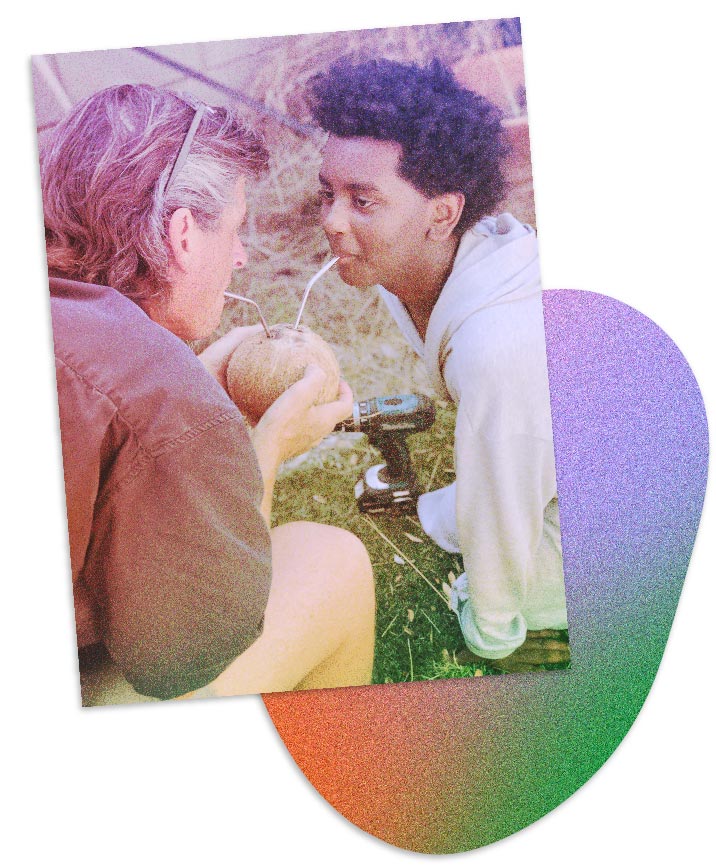
So, when the pandemic is over, and we inevitably fling open the doors again, all of us dispersing, I’d like to hold on to a few things: I’d like to make time to continue playing Gin Rummy with my son, and to keep listening to albums in their entirety with my daughter. I’d like for my husband to maintain his Sunday bread-making ritual, and I’ve formally requested a once-monthly Bolognese Sauce Day. Mostly, though, I hope that when my kids venture back out, whether to Shanghai or to Santa Monica, that they’ll still allow me some small measure of nurturing motherhood, even as I watch them gracefully navigate this world on their own.
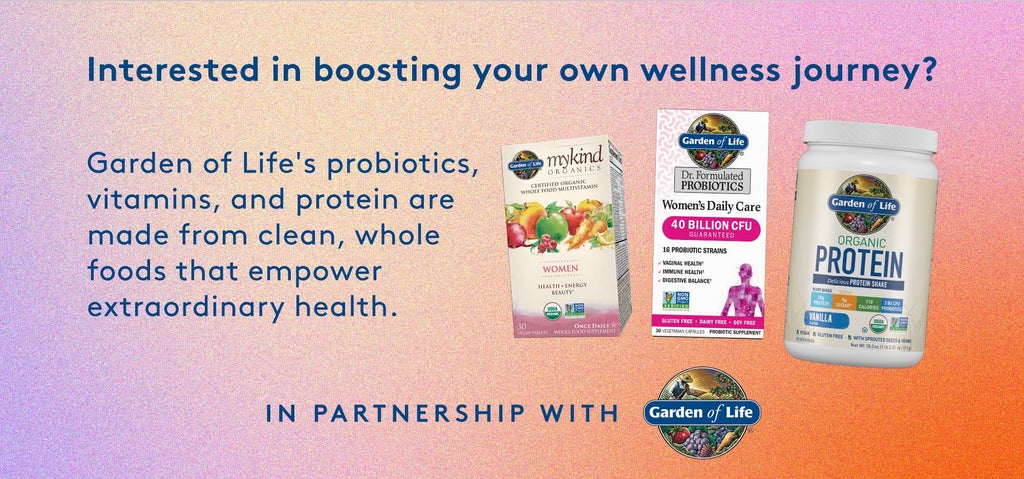
Like what you see? How about some more R29 goodness, right here?
DMTBeautySpot
via https://www.DMTBeautySpot.com
Julie Corby, Khareem Sudlow


0 comments